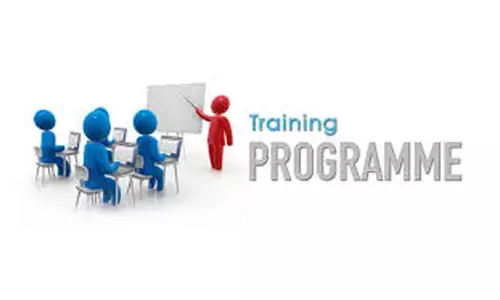How to write a profile?

The effectiveness of the profiles will often determine the success of our ventures.
Like every aspect of writing, profiles also require careful thinking and articulation. The skill can be systematically taught and learnt. You must develop confidence and you will see that you too can succeed in this regard in the long run.
We are often asked to write a profile of ourselves as well as those of the people and organisations we know. Such profiles could stretch from those of relatives and close friends in blog pages/job applications to profiles of professional organisations on websites.
 The effectiveness of the profiles will often determine the success of our ventures. Therefore, there is no gainsaying the crucial importance of learning to write a profile. Like every aspect of writing, profiles also require careful thinking and articulation. The skill can be systematically taught and learnt. You must develop confidence and you will see that you too can succeed in this regard in the long run.
The effectiveness of the profiles will often determine the success of our ventures. Therefore, there is no gainsaying the crucial importance of learning to write a profile. Like every aspect of writing, profiles also require careful thinking and articulation. The skill can be systematically taught and learnt. You must develop confidence and you will see that you too can succeed in this regard in the long run.
Is there a method to writing a profile? In this Language Note, I shall tell you, step by step, the method you could adopt so that you acquire the necessary skills to write profiles.
Background Work:
 Who is the audience? This is an important aspect and will require some research and search on the net and elsewhere. Do not neglect this crucial aspect.
Who is the audience? This is an important aspect and will require some research and search on the net and elsewhere. Do not neglect this crucial aspect.- What is their background? The knowledge of the background will help you provide the context without which your effort will be crippled. This is as important as the first one stated above.
- What are their expectations? The knowledge of the expectations will give you the necessary focus in your writing the profile.
- Who are one's competitors? This aspect will help you highlight your strength and knowledge of your limitations, highlight your own aspects vis a vis those of the others.
Writing Stage [Draft]
- Prepare an outline, highlighting salient features of the organisation; avoid all details unless they reinforce significant points. Relevance is the key word. You must get this dinned into your ears. Writing extra/unnecessary stuff is called redundancy, to be avoided at any cost.
- Use simple, direct expressions, and simple sentences. This is true of all writings, especially of the present kind.
- Avoid unnecessary pedantry and technicality. Do not assume a pompous tone or a sense of superiority. Strike a balance between an undue modesty and unwanted arrogance. This aspect is very useful here, as indeed, in all aspects of human interactions.
Revised Draft
- Ensure an introduction, middle and conclusion. This sounds fairly ordinary and appears like a truism, but most people tend to forget this. We forget this in answer scripts as well as writings of the present kind.
- Avoid a long introduction. This is a weakness most people have. Generally, this stems from an unsureness of how to proceed. Most students, for instance, give a lot of unnecessary biographical details in their answer scripts in the humanities and social sciences. This tends to weaken their efforts.
- Make sure that all points are logically and scientifically arranged. This aspect requires careful thinking.
- Provide a few brief and telling examples wherever required.
- Highlight key features, i.e. prioritise. This aspect cannot be over emphasised.
- Allocate proportionate space to major aspects of the organisation.
- Ascertain that the desired word limit has been adhered to. Word limit is very important. Remember that most people do not have a lot of time to go through written material.
- All extra material, not essential, to go at the end (separately) in the form of an appendix.
To remember and practice
Select the correct options in the following questions 1. The knives are out for a. a skill that involves playing with knives b. waiting for the opportunity to strike at the enemy c. none of the above 2. To bite the bullet is to a. to accept defeat in a battle b. to accept with courage the prospect of a fight c. to commit suicide 3. Young Turks are a. young agitators b. young at heart c. Turks who are young 4. To hit the sack is to a. to harvest the grain by hitting the sacks b. to fall asleep when one is dead tired. c. to take part in a game where sacks are used 5. Nobody's Poodle a. someone with a mind of his/her own b a poodle who is lost c. unwanted items
Answers 1. b 2.b 3.a 4.b 5.a




















